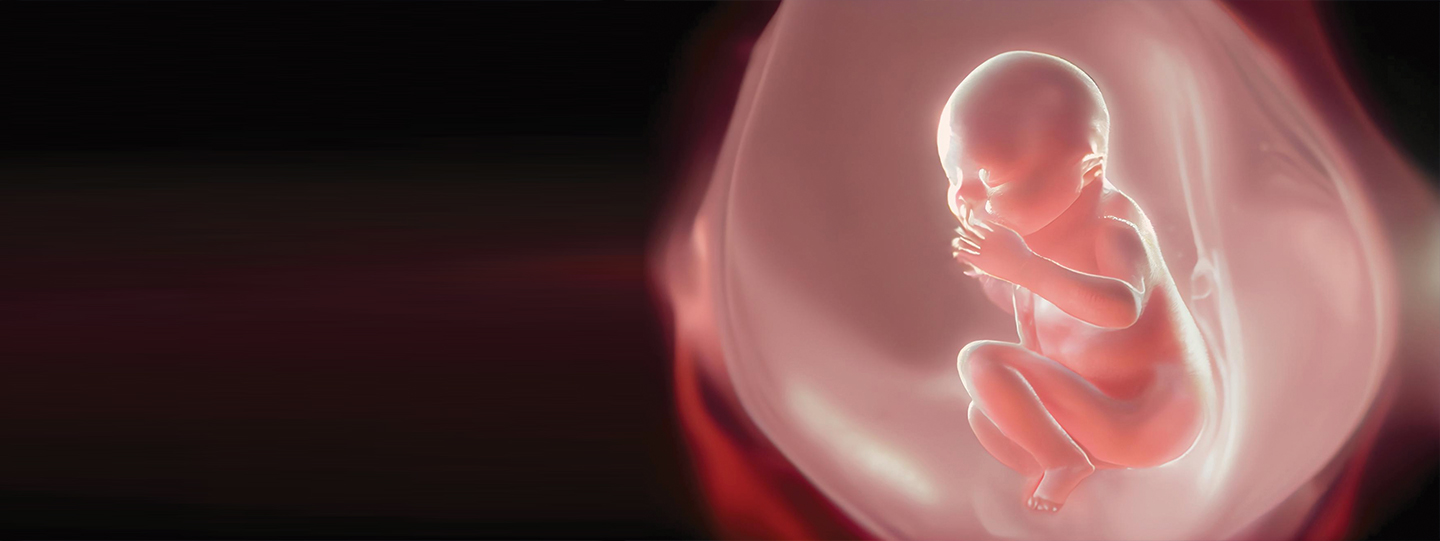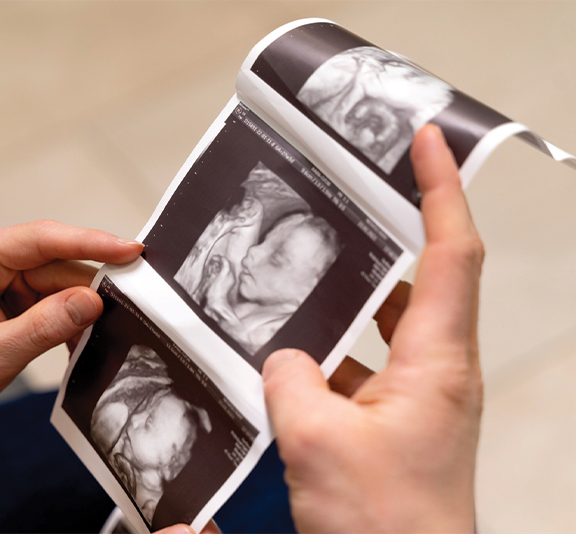

We have a dedicated team of expert doctors who specialize in the diagnosis and management of various health issues that can impact the growth and development of a baby within the womb, or lead to complications in the pregnancy. We adhere to the use of cutting-edge approaches and techniques for thorough assessments and offer robust interventions to ensure your and your baby’s safety.

Fetal Medicine, also known as maternal-fetal medicine (MFM) or perinatology, is a highly specialized branch of medicine, dedicated to the management of health issues and complications affecting a woman and her baby, during the various stages throughout the pregnancy.
It plays a vital role in ensuring the well-being of a mother and her child by using modalities to assess and detect potential risks, curating treatments to manage the same and offering counselling to parents with high-risk pregnancies.
Fetal Medicine also encompasses a variety of interventions for effectively managing congenital defects and abnormalities in babies who are yet to be born.
Fetal Medicine is important for both, the mother and the fetus growing inside her. No matter how unique or challenging your pregnancy is, fetal medicine can prove to be beneficial in the long run. One of the most important and noteworthy benefits is the detection of potential health issues in the fetus. It also helps to analyze the presence of any genetic or chromosomal abnormalities and addresses them at the earliest. It involves a variety of procedures that make it possible for doctors to thoroughly assess important structures and organs, such as the heart, brain, spine and kidneys.
In the case of high-risk pregnancies, Fetal Medicine can help to keep a regular track of fetal health and well-being. With regular and keen monitoring, it becomes possible to catch early signs of potential complications and manage them in a much more effective way with medications, lifestyle modifications and necessary interventions.
Fetal Medicine gives a sense of confidence and surety to the expecting couple, by giving vital information related to the babys overall well-being and development through various stages of pregnancy.
It is the earliest stage of pregnancy that starts from conception and lasts till the 12th week of pregnancy.
Week 6 to Week 10 (Pregnancy confirmation): You will need to go for a USG to confirm the pregnancy, determine whether it is a single or multiple pregnancy, detect the signs of cardiac activity and rule out complications like ectopic pregnancy and adnexal mass. This is also important for accurate dating.
Week 11 to Week 13+6 (Down Syndrome screening and a Nuchal Translucency Scan): USG is performed on the fetus to assess Nuchal Translucency, nasal bone, ductus venous and tricuspid valve, as well as to determine the potential risks of Down Syndrome. Biochemical screening may also be done for Down Syndrome and Preeclampsia. Early assessment for detecting any fetal anomalies may also be done.
It is the mid-stage of the pregnancy, which starts from the 13th week of pregnancy and lasts till the 26th week.
Week 18 to Week 20 (Malformation/Anomaly Scan): A detailed scan will be done to detect the presence of any structural anomalies in the important structures, such as the brain, face, spine, stomach, limbs, kidneys, bladder and heart of the fetus. To determine any potential risks of preterm labour, your cervix will be measured. Uterine artery Doppler may be done if it is a high-risk pregnancy to look out for any signs of preeclampsia and growth abnormalities.
Week 18 to Week 26 (Fetal ECHO): To thoroughly assess the heart and connecting vessels of the fetus, an echocardiogram will be done. This is important if you have a personal or family history of a heart-related condition such as cardiac defects and diabetes. You may also need it if your USG reports show Nuchal Translucency or any structural abnormalities in the fetus. This helps to detect early signs of any heart disease and manage it with timely intervention to alleviate the risks of any future complications.
It is the final stage of the pregnancy, which starts from the 27th week of pregnancy and lasts till the baby is born.
Week 26 to Week 40 (Fetal growth and colour Doppler): Ultrasound is done to evaluate the growth and development of the fetus, assess fetal weight and localize liquor & placenta.
Week 24 to Week 34 (Scanning): These help to provide vital information and play a crucial role in prenatal bonding.
Comprehensive Obstetrical Level III Ultrasound by Feto-Maternal Expert for confirmation of Pregnancy and dating scan
No, Fetal Medicine does not necessarily require a referral from an Obstetrician. You can connect with our team directly.
A High-Risk Pregnancy is one in which the mother or the Fetus is at risk of potential health complications. This is often linked with multiple pregnancy or various risk factors like Obesity, Diabetes, advanced maternal age, etc.
Chromosomal abnormalities are the major cause of birth defects in kids and one of the most common of these is Down Syndrome.
Fetal Medicine is necessary for women with bad obstetric history and also those who had a previous child with birth defects.
Various facilities offered at the Fetal Medicine Centre in Surya Hospital incude:
It is good to be curious when it comes to your health, but, it is equally important to put your curiosity to rest by seeking expert opinion. Have more questions related to your health?
Meet the compassionate souls behind our services. Our dedicated team of professionals is here to ensure you receive the best care, always

Meet the compassionate souls behind our services. Our dedicated team of professionals is here to ensure you receive the best care, always
